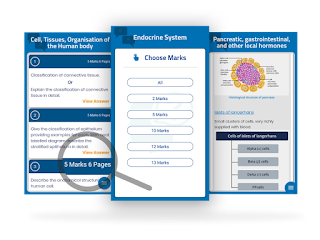Since late 2019 and the beginning of the year 2020, the world has been suffering from an ongoing pandemic;
COVID-19 caused by SARS-CoV-2. People of India and other parts of the world are experiencing worldwide shutdowns and region-wise lockdowns.
What is more interesting amid COVID-19 is the reconstruction of nature.
- Endangered species being spotted at various places
- Reduction in air pollution
- Reduced vibrations on the earth
“Corona, quarantine, masks, 6 ft distance from each other”, these are currently the trending words. In the midst of all these, we also experience traffic in google search, as people all around the world are curious to know about the serious effects of the ongoing pandemic and work from home.It is advised that one believes in the facts and takes appropriate measures rather on MYTHS.
COVID–19, previously known as “2019 Novel coronavirus” is a disease caused by the virus SARS-CoV-2 (Severe acute respiratory syndrome coronavirus 2). Like for any other viral disease, the virus and the disease are named by different names.
COVID-19 is the acronym of “Coronavirus disease 2019”. The virus is termed ‘Novel’ as it’s a new virus. It began with an animal population, got transmitted to humans and presently can be transmitted from human to human. Our immune system has not encountered this strain of virus before, therefore we have not developed immunity.
COVID-19 cannot be prevented by exposing oneself to high temperatures (more than 25 °C) or living in hot climate regions.
Countries with hot weather have reported COVID-19 cases. Therefore, you can still catch COVID-19 no matter how sunny or hot the weather is.
If the virus can sustain in the normal average body temperature of 37 °C inside humans, then it is evident that it survives in higher temperatures. Again, hot baths are not going to work.
“Adopt protective measures by washing your hands frequently and thoroughly and avoid touching your eyes, mouth, and pricking your nose.”
Staying in cold and snow regions cannot protect you from contacting the SARS-CoV-2.
There is no evidence to prove that cold weather can destroy the coronavirus. The normal human body temperature remains within the range of 36.5 °C to 37 °C, regardless of the external temperature or weather.
“WHO advises people of all ages to take steps to protect themselves from the virus, for example by following good hand hygiene and good respiratory hygiene.”
People of all age groups can be infected by the coronavirus.
COVID-19 infection is not specific to age. Older people and people with pre-existing medical conditions (such as asthma, diabetes, heart disease) appear to be more vulnerable to becoming severely ill with the virus.
People infected with COVID-19 need not live with it forever. Individuals can recover from COVID-19.
If you contact the disease, make sure you treat your symptoms. If you have a cough, fever, and difficulty breathing, seek medical care early – but call your health facility by telephone first. Most patients recover thanks to supportive care.
The ability to hold your breath for 10 seconds or more without coughing or feeling of discomfort does not mean you are free from COVID-19.
Signs and symptoms may appear 2 – 14 days after exposure to the coronavirus.
The most common symptoms of COVID-19 are dry cough, tiredness, and fever. Some people may develop more severe forms of the disease, such as pneumonia. The best way to confirm if you have the virus-producing COVID-19 disease is with a laboratory test. You cannot confirm it with such breathing exercise. Holding your breath for 10 seconds can even be dangerous.
Consumption of alcohol does not protect you from contacting COVID-19.
Consuming alcohol can increase your risk of health problems and overdose is fatal.
Agents like mosquitoes and other insects cannot transmit the COVID-19.
COVID-19 mostly spreads through droplets produced when infected people sneeze or cough and by touching contaminated surfaces.
It’s easy to think of mosquitoes as tiny flying dirty syringes transferring droplets of infected blood from person to person. The reality is far more complex. When a mosquito bites and sucks up some blood that contains a virus, the virus quickly ends up in the gut of the insect. From here the virus may start utilising the nutrients and multiply or it may perish in the gut depending upon its genetic makeup.
“There is no evidence for COVID-19 infection being transmitted through agents like mosquitoes.”
Placing your hands under dryers will not prevent you from contacting the COVID-19 infection.
To protect yourself against the coronavirus, you should frequently clean your hands with an alcohol-based hand sanitizer or wash them with soap and water, at least for 20 seconds.
Once your hands are cleaned, you should dry them thoroughly by using tissues or a warm air dryer.
Spraying alcohol or chlorine all over the body may not destroy the coronavirus present inside your body.
Inhalation of chlorine gas/aerosols causes eye, nose and throat irritation, burning sensations, and sneezing. They also cause skin irritation. High exposure to chlorine may lead to nausea and vomiting.
Alcohol breaks down the immune system in the lungs, making them more susceptible for infections. It can also cause life-threatening acute respiratory distress syndrome (ARDS).
Eating garlic and drinking jeera water is not an alternative for Corona vaccines or treatment of the same.
Garlic is a healthy food that may have some antimicrobial properties. However, there is no evidence from the current outbreak that eating garlic has protected people from the new coronavirus. Jeera water is only an immunity-boosting drink.
Vaccines for COVID-19 are under development.
People are dependent on vaccines rather than antibiotics to prevent and treat COVID-19 patients.
Antibiotics work only against bacterial diseases. And we know COVID-19 is a viral disease.
However, antibiotics are used to treat infected patients because bacterial co-infection is possible.
“There are no vaccines produced against coronavirus. The virus is so new and different that it needs its own vaccine. Researchers are trying to develop a vaccine against 2019-nCoV, and WHO is supporting their efforts.”
Although there are no effective vaccines against 2019-nCoV as of now, general vaccinations against respiratory illnesses are advised to protect your health.





















